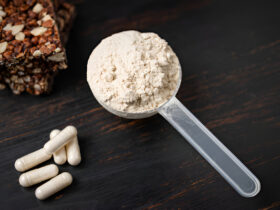In recent years, there has been a growing interest in gut health, and for good reason. The gut plays a crucial role in our overall health and well-being, affecting everything from our immune system to our mood. One way to support gut health is by including prebiotics sachet in your diet. But what exactly are prebiotics, and why should you consider incorporating them into your diet? In this blog, we’ll talk about what prebiotics are and why you should get them into your diet.
What are Prebiotics?
Prebiotics are types of dietary fiber that are indigestible to humans and serve as food for the beneficial bacteria in our gut. The scientific definition of prebiotics is “a substrate that is selectively utilized by host microorganisms conferring a health benefit.” In simpler terms, prebiotics are food for the good bacteria in our gut that help to keep our digestive system healthy and functioning properly.
Prebiotics vs. Probiotics
While prebiotics and probiotics are often used interchangeably, they are not the same thing. Probiotics are live bacteria that are ingested to improve the balance of bacteria in our gut. Prebiotics, on the other hand, are the food that these beneficial bacteria feed on. Probiotics work to increase the number of good bacteria in the gut, while prebiotics help to support the growth and maintenance of these beneficial bacteria.
How They Work with Probiotics to Improve Health Benefits
The combination of prebiotics and probiotics can work together to improve gut health and overall health. Probiotics are beneficial bacteria that help to keep our gut healthy and functioning properly. However, in order for these good bacteria to thrive, they need to be fed with prebiotics. By consuming prebiotics, we are providing the necessary food for these beneficial bacteria, which can help to improve gut health and overall health.
Risks, Side Effects, and Interactions

While prebiotics are generally considered safe, some people may experience side effects such as bloating or gas. These side effects are usually mild and temporary and can be reduced by starting with a low dose of prebiotics and gradually increasing the dosage. It is important to note that prebiotics and probiotics can interact with medications, so it is always best to consult with a healthcare professional before starting a new supplement regime.
Prebiotic Foods
Prebiotics can be found in many types of foods, including fruits, vegetables, and whole grains. Some of the best prebiotic foods include
- Garlic
- Onions
- Leeks
- Artichokes
- Asparagus
- Bananas
- Oats
- Barley
By incorporating these foods into your diet, you can naturally increase the number of prebiotics in your diet and support the growth of beneficial bacteria in the gut.
Supplements and Dosage Recommendations
If you are unable to get enough prebiotics from your diet, or if you are looking for a more concentrated source of prebiotics, supplements are available. Prebiotic supplements are available in many forms, including capsules, powders, and chewable tablets. When choosing a prebiotic supplement, it is important to look for a high-quality product from a reputable company. It is also important to follow the dosage recommendations on the label, as taking too many prebiotics can cause side effects such as bloating and gas.
Prebiotics are dietary fiber that helps to feed the beneficial bacteria in our gut, which can lead to improved gut health and overall health. While prebiotics and probiotics work together to support gut health, it is important to properly on how they both are essential for our healthy living. By consuming prebiotic foods or taking prebiotic supplements, you can naturally increase the number of prebiotics in your diet and experience the many benefits of improved gut health. So, start incorporating prebiotics in your diet today and reap its benefits.









